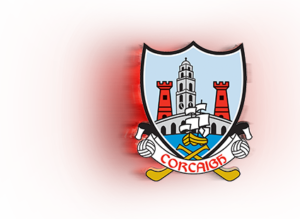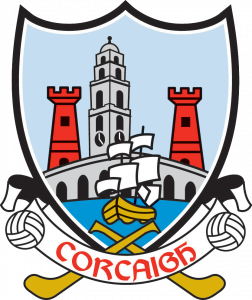In the midst of another busy week on the pitch here in SuperValu Páirc Uí Chaoimh, it was fitting that word has come through that our pitch has been awarded ‘Pitch of the Year’ from the GAA National Pitch Workgroup.
A robust system of assessments was completed during recent visits to the six finalists, based on three broad criteria:
(a) Pitch quality assessment during the technical visit in October 2022
(b) Environmental conditions and usage
(c) Resources and management assessment.
A wide range of factors influence the quality of pitches, including the initial construction, the drainage system, the quality of the maintenance programme and the level of pitch use. Accordingly, a scoring system was used, based on over thirty different factors influencing each pitch and this was combined with a weighting factor related to the importance of each factor to avoid bias in the scoring of any one factor.
Particular thanks must go to all the team here at SuperValu Páirc Uí Chaoimh, in particular, John Murphy of Goldcrop, Stephen Forest and the team at Turftech, our new Groundsman Colm Daly and of course, all our staff and stewards.
Lest the aforementioned were due any break, the historic Munster Rugby game here tomorrow night, followed closely by the Munster Senior Club Football semi-final on Saturday (Live on RTE) and two County Football Finals on Sunday will, once more, show the value of having a world class pitch at our disposal.




Cork All Ireland Medal winner buried in unmarked grave in Glasnevin Cemetery
Having laid in an unmarked grave for 80 years, the new memorial is a fitting tribute to Timothy Downey, a Cork-born star of the GAA.
Cork All Ireland medal winner buried in unmarked grave in Glasnevin Cemetery.
On 8th November 2022, Uachtaráin Chumann Luthchleas Gael Labhras Mc Cárthaigh unveiled a memorial headstone on the grave of fellow Corkman Timothy ‘Ted’ Downey in Glasnevin cemetery Dublin. This was the culmination of research conducted by Midleton clubmen Vincent O’Neill and John Fenton into the history of the Midleton team of 1890 who brought the first All-Ireland senior football title to Leeside. In researching these largely forgotten players the researchers have tracked their paths to many corners of the world with fascinating results. These men were the giants on whose shoulders the modern-day players stand and their commitment and dedication to the game and the Association set the standards for future players to aspire to. While the main focus on the day in Glasnevin was on Timothy ‘Ted’ Downey, his former Midleton playing colleague William Colbert, who too is buried in Glasnevin cemetery, (within 200 metres of Timothy Downey’s grave) was also remembered and honoured.
It is indeed fitting that these two great Corkmen Timothy Downey and William Colbert and their colleagues are remembered and honoured because they wore their colours with pride and set the standards for others to follow.
Strength & Conditioning Conference for Club Coaches
One Cork GAA Old Head Golf Classic
AIB Bank
Amarenco Team
Arkil
Claran Consultants
Cork Lighting
Corrigan
Cumnor
Davy
ERA Downey McCarthy
EY
Fota
Goldcrop
John Maginer – Coolmore
John Murphy
Kearys Motor Group
Malones
Martin Walsh Allcare Pharmacy
Mr.Binman
NB Shipping
O’Flynn Gp 1
O’Flynn Gp 2
Pepsico
PFH
PMG Group
Kick a Point for Seamie
Seamie Brady, a lifelong GAA member from St Mary’s from Co Meath had a serious accident in September 2016 when volunteering to carry out works on the old St Mary’s GFC clubhouse. Seamie suffered significant lifelong injuries as a result of this accident and has been unable to work since. This has left Seamie and his family in a dire financial situation. St Mary’s CLG wants to raise funds to bring financial stability to the Brady family and we are calling on the GAA community to support our gofundme #KickapointforSeamie.
On Saturday November 12th, St Mary’s GFC (Meath) members are proposing to Kick a Point in all 32 GAA County Grounds, take a short video, and share it with each County PRO who in turn will post out on their social media platforms with the hopes of raising extremely needed funds for Seamie and his family through a GoFundMe.
https://gofund.me/32058281
This fundraiser is fully backed by the GAA and personally endorsed by the GAA’s Director General Tom Ryan.
St Mary’s GFC members will join us at SuperValu Páirc Uí Chaoimh on Saturday November 12th for the Munster Club Senior Football Championship Nemo Rangers v Clonmel Commercials and they will kick a point at half time of the game.
SuperValu Páirc Uí Chaoimh – GAA Pitch of the Year